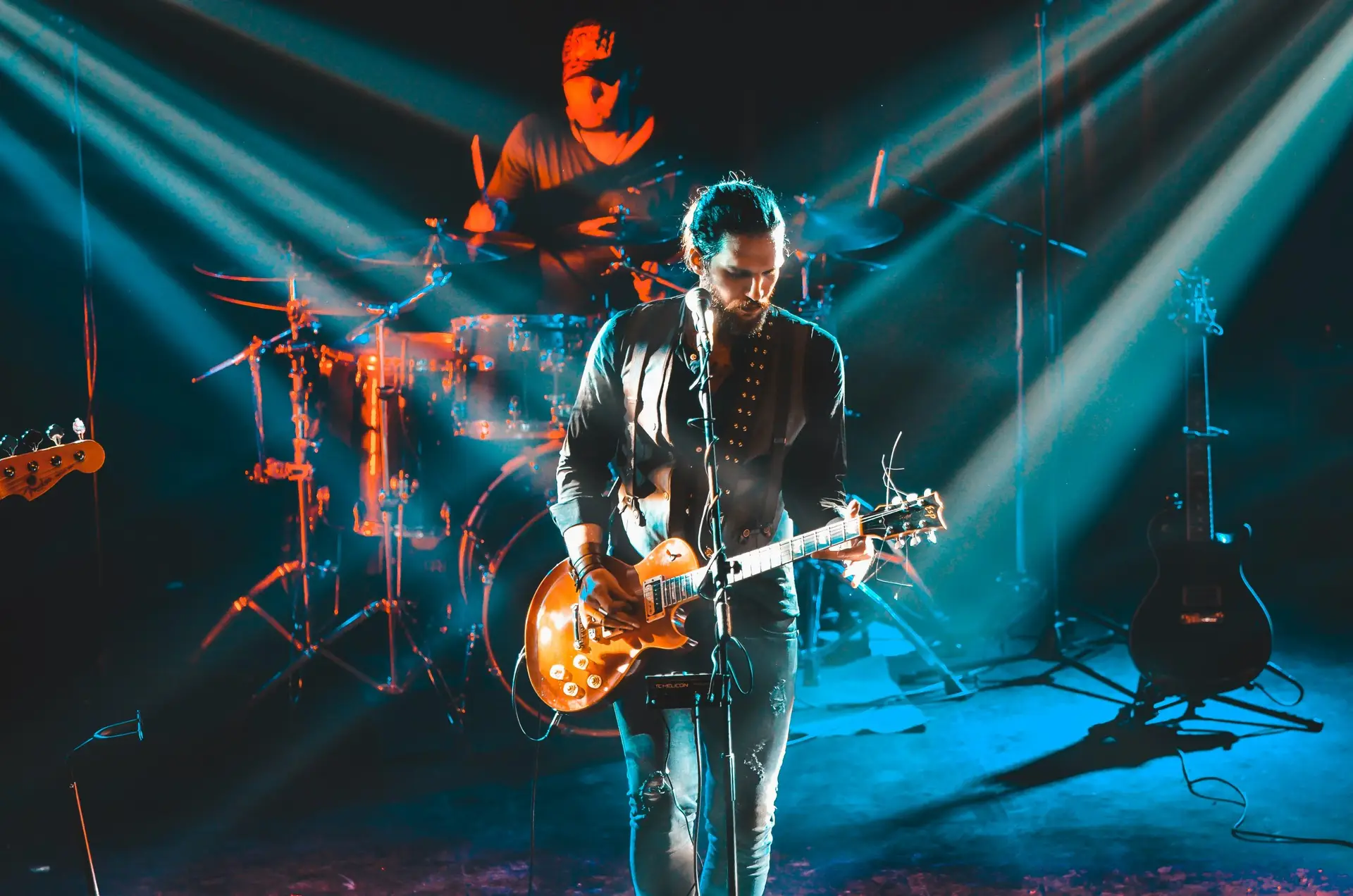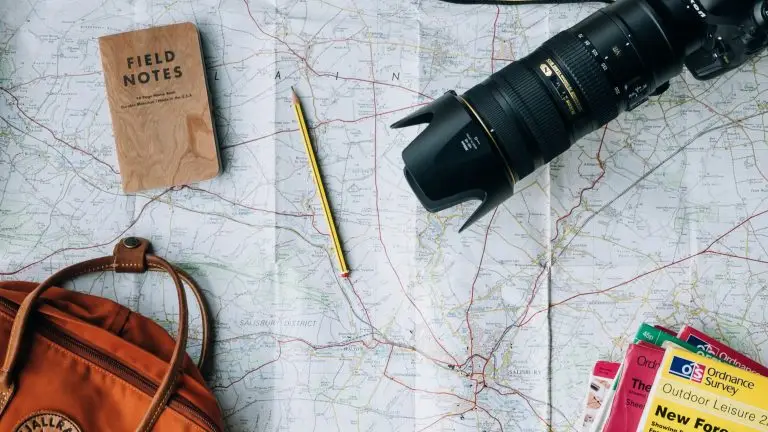
The Hidden World Of Thai Psychedelic Rock
Many people know the famous band Khruangbin. Some even know Paradise Bangkok Molam International Band. But few know that their grooves come from lam storytelling
When we talk about the best music documentaries, people always mention some of the famous music documentaries. These names could be Amy (UK), Buena Vista Social Club (Cuba), and Searching for Sugar Man (US/South Africa).
These are popular because of unforgettable personal stories. But beyond these titles, there are many lesser-known gems, which are often more raw, regional, and revealing.
But why watch a music documentary instead of just listen to music?
Well, if you want to understand a country, watch its music documentary. These documentaries reveal the complex history of a country, often telling stories of political struggle, social change, or cultural pride.
Also, answers to questions like how protest music became popular in Latin America, what music European bands are mixing, or how Mongolian music especially throat singing became popular, can only be found in music documentaries.
So, let’s discuss some of the best documentaries on music from different countries that you may have never watched before!
Pavarotti is about the life of legendary Italian operatic tenor, Luciano Pavarotti. Since the documentary was made in 2019, it uses archival footage, never-before-seen videos and behind-the-scenes clips.
It covers his debut at Teatro Reggio Emilia in 1961 and his 1972 performance at New York’s Metropolitan Opera, where he delivered his legendary nine high Cs in Donizetti’s La fille du régiment.
The documentary also covers his other historical performances, including Turandot, La Bohème, and Rigoletto. It also highlights The Three Tenors concert in 1990 at the Baths of Caracalla in Rome, which became one of the best-selling classical albums of all time.
There’s also a discussion on his personal life from his marriage to Adua Veroni, his later relationship with Nicoletta Mantovani, and his support for causes like landmine removal and children’s education through his Pavarotti & Friends benefit concerts.
Pavarotti’s director, Ron Howard, who has won 2 Oscars. He was also involved with the project, Farida, which is about the life of Frida Kahlo. You can read more about Frida Kahlo, one of the famous people in Mexico.
Break It All is one of the best music documentaries on Netflix by the director Picky Talarico and produced by Argentine musician, Gustavo Santaolalla. The docu-series explores how rock music took root in countries like Argentina, Mexico, Chile, Colombia, and Uruguay from the 1950s onward.
The documentary pays tributes to Los Teen Tops and Los Saicos, who adapted U.S. rock ‘n’ roll into Spanish-language songs. Later, how rock became protest music during the 1970s. It particularly focuses on Sui Generis and Los Jaivas, who worked during Argentina’s military dictatorship and Pinochet’s Chile.
One key moment is the 1987 concert by Soda Stereo in Santiago, Chile, which symbolized a cultural thaw under dictatorship. The documentary also highlights the explosion of Mexican rock in the 1990s with Café Tacvba and Molotov.
It also talks about the emergence of Aterciopelados during Colombia’s civil unrest.
What makes Break It All one of the best documentaries about music is its discussion of how singers fought political repression, economic collapse, and censorship.
At the end, the documentary also discusses the current state and future of Latin Rock. Since Latin rock flourished during military dictatorships, you can check best Argentinian movies on the topic.
Gurrumul is an Australian documentary about the legacy of Geoffrey Gurrumul Yunupingu, a blind Indigenous Australian musician. Gurrumul was born blind with a haunting voice and used to sing in Yolŋu Matha languages.
Gurrumul, initially, was a member of the Yothu Yindi band in the 1990s, and later he started working with the Saltwater Band. However, he got famous only after going solo by releasing the self-named album, Gurrumul.
He then went on to collaborate with Sting, Elton John, and the Sydney Symphony Orchestra.
The main part of this music documentary is its exploration of the tension between commercial success and cultural responsibility. Gurrumul rarely gave interviews because of his desire to live according to Yolŋu customs.
You can also watch the documentary to learn about Aboriginal culture from an insider’s perspective and through music. Overall, it is one of the best music documentaries on Netflix that you should watch.
Since this documentary is about an Indigenous musician, you can learn more about them in Indigenous books.
Mali Blues is about the journey of four Malian musicians, as they prepare for a peace concert in Bamako, Mali. It explores how their music became a way of cultural resistance amid religious extremism of northern Mali in 2012.
Since music and dancing was banned, the documentary discusses how this ban affected cities like Timbuktu, Gao, and Kidal, where centuries-old musical traditions, such as griot storytelling and Tuareg desert blues, were silenced.
Many Mali musicians went underground. For example, Ahmed Ag Kaedi, a Tuareg guitarist had to flee his home and now performs with his group Amanar from exile in Bamako.
Fatoumata Diawara, a Grammy Award nominee, only returned to Mali after international success to raise awareness about peace and women’s rights. Her performances in Bamako and during her travels in Ségou are the highlights of this best documentary on music.
Meanwhile, Master Soumy, a rapper, writes lyrics addressing corruption, youth frustration, and religious manipulation. It’s a great documentary in exploring how different Malian music genres like traditional griot, desert blues, and hip-hop serve as a way of resistance.
Rumba Rules, New Genealogies is one of the best music documentaries on the contemporary Kinshasa music scene, which follows the Congolese band Yoka Nzenze. The documentary captures rehearsals, performances, and behind-the-scenes discussions.
Modern and traditional clashes in this musical documentary, a central theme. Yoka Nzenze’s members fuse Congolese guitar styles, Lingala lyrics, and electronic beats, showing that rumba today is not fixed.
Unlike other music docs, this one avoids narration, so musicians speak for themselves in studios, bars, and streets.
The documentary is especially valuable for African cultural studies because it discusses rumba as a living, urban genre. Recently, I also covered books about Congo DRC, which talk about the past and present of the country.
No One Knows About Persian Cats is one of the best music documentaries about Tehran’s clandestine rock scene. It was short covertly over roughly 17 days without permits.
It follows Negar Shaghaghi and Ashkan Kooshanejad, two underground musicians released from prison, as they try to meet bandmates and forge passports for a gig in London.
The film features real underground acts from Tehran, including Take It Easy Hospital, Hichkas, The Yellow Dogs, and others. They perform secretly in basements, rooftops, and even cowsheds to avoid authorities.
Historically, it also discusses the decline of youth culture after the 1979 Islamic Revolution, when the government banned many Western-influenced music genres and prohibited women from singing publicly.
It remains one of the most popular documentaries about music, which won the Un Certain Regard Special Jury Prize at Cannes in 2009. Despite the state censorship, Iran has a great cinema. You can explore some of the best Iranian movies.
Rockabul is a music documentary from Afghanistan about District Unknown, Afghanistan’s first heavy metal band. The film was shot in Kabul between 2009 and 2014, when U.S. and NATO forces were there.
Travis Beard, an Australian photojournalist, as the band’s manager, made recordings of their concerts and rehearsals.
Qasem and Lemar Fidai, were two brothers, who founded the band with other members. They practiced in secret at Beard’s home in Shar-e-Naw, a central Kabul neighborhood.
One of their first public performances was in 2011 at Camp Tora Bora, a NATO military base. They also performed at the Sound Central Festival, Afghanistan’s only alternative music festival, at the French Cultural Centre in Kabul.
District Unknown received death threats, faced harassment, and kept their identities secret by performing in masks.
Eventually, they had to disband and leave the country. By 2014, Pedram had moved to Norway, Qasem and Lemar to Turkey and Germany. You can read books about Afghanistan, if you want to know more about the country.
Far From the Nile was quite an ambitious project, and later made into one of the best music documentaries. The Nile Project was an ensemble, in which 12 musicians from 7 Nile Basin countries—Egypt, Sudan, Eritrea, Ethiopia, Kenya, Burundi, and Uganda—came together for a 100‑day tour across the U. S.
The documentary shows performances, rehearsals, and travels, while the singers wrestle with cultural and logistical obstacles. With minimal commentary, the documentary captures greenroom discussions, tour bus arguments, rehearsals, making it an intimate experience.
This documentary about music was released at the 44th Cairo International Film Festival, where it won Best Non‑Fiction Film. Later, it also won the Silver Award at the 12th Luxor African Film Festival.
Paul Pena was an American singer who played Delta blues, jazz, morna, flamenco, folk, and rock and roll. That was till in his first part of life. Later, he became fascinated with other genres, especially Tuvan throat singing.
And that’s how an American musician ended in Russia. In fact, in the remote Tuvan Republic, deep in Siberia.
Pena was nearly blind from birth and became a seasoned blues guitarist. He played with legends like B.B. King, T-Bone Walker, Bonnie Raitt. He also wrote the lyrics for the iconic song, “Jet Airliner,” for the Steve Miller Band.
After hearing throat singing on Radio Moscow, he used an Optacon device and bilingual dictionaries to learn singing in multiple overtones, and mastered them enough to impress the Tuvan master Kongar‑ol Ondar.
At the 1995 symposium, Pena became the first Westerner to compete, earning the kargyraa “Audience Favorite” at the National Theatre of Tuva in Kyzyl.
Genghis Blues won the 1999 Sundance Audience Award and was nominated for the Academy Award for Best Documentary Feature, making it one of the best music documentaries.
Since the documentary extensively mentions Russia, why not check out some Russian literature books.
ReMastered: Who Shot the Sheriff? is one of the best music documentaries on Netflix. It investigates the attempted assassination of Bob Marley at his home in 1976.
Marley, his wife Rita Marley, and his manager Don Taylor were at home, when armed men opened fire two days before the Smile Jamaica concert. It was a peace event organized by Prime Minister Michael Manley of the People’s National Party (PNP).
Despite his injuries, Marley performed at the concert on December 5, raising suspicions that the shooting was politically motivated.
From that point on in this music documentary, everything gets political.
It discusses the violent rivalry between the PNP and the Jamaica Labour Party (JLP) in the 1970s. It explores how armed street gangs supported both parties. The PNP had the backing of George “Feathermop” Spence of Rema, and the JLP of Lester “Jim Brown” Coke.
These gangs controlled neighborhoods and used intimidation to influence elections. The documentary reveals how the gunmen in Marley’s shooting were linked to Edward Seaga’s JLP.
There are also claims of possible involvement of the CIA. It features interviews suggesting that U.S. intelligence feared Marley’s influence on socialist ideals.
Chain of Light is not strictly a music documentary but a short film on YouTube that celebrates the discovery of a culturally significant recording for world music. It documents the restoration of a lost 1990 recording by Nusrat Fateh Ali Khan at Real World Studios in England.
The album was discovered when a World War II-era storage hut was being cleared. And that clearance led to the rediscovery of the lost album.
The album features a pristine version of “Ya Allah Ya Rehman” and the only known recording of “Ya Gaus Ya Meeran”, restored from deteriorating analogue tapes.
The short film features Peter Gabriel and Michael Brook. Gabrie shares his admiration for Nusrat’s voice and the emotional intensity of the 1990 sessions. Michael Brook, who co-produced many of Nusrat’s crossover works, provides artistic insight into recordings.
Nusrat was born into a 600-year-old lineage of qawwals. He took over the family tradition in 1971 and went on to become the most globally influential Sufi qawwal, a tradition from 10th-century Iran.
1 Giant Leap is a cross-media documentary and global music project by Jamie Catto and Duncan Bridgeman.
Over six months, they traveled to over 25 countries including India, Ghana, Senegal, Nepal, Jamaica, New Zealand, and others, with digital studio and camera gear to record live collaborations between local musicians.
The film has conceptual chapters like Time, God, Sex, Money, and Death. It features interviews with thinkers such as Tom Robbins, Kurt Vonnegut, Brian Eno, and Dennis Hopper.
It has musical performances from artists like Baaba Maal (Senegal), Michael Stipe (R.E.M.), Asha Bhosle (India), Speech (Arrested Development), Rokia Traoré (Mali), and Eileen Eivers (Ireland).
One of the standout moments is “My Culture”, a track recorded in London that features Robbie Williams and Maxi Jazz, layered over samples from recordings in India and Africa.
There are so many other interesting happenings from world music captured on camera, making this one of the best music documentaries.
The film was released alongside an album of the same name, and was nominated for a Grammy in 2003 for Best Long Form Music Video.

The last music documentary, 1 Giant Leap, perfectly sums up our discussion so far. It shows how the music has no boundaries but only stories. And these stories define the music, musical instruments, cultures, lyrics, which eventually transcend the world.
And documentaries are a great way to explore the roots, history and cultural significance of music.
If you have any favourites that you think should be included in our best music documentaries list, please share!
Do you want global book, music, and movie recommendations straight to your inbox?
Sign up for the newsletter below!

Many people know the famous band Khruangbin. Some even know Paradise Bangkok Molam International Band. But few know that their grooves come from lam storytelling

The 1960s and 1970s were wild times in Latin America and Spain, basically all of the large Spanish-speaking countries. There were cultural revolutions, anti-establishment movements, and

I recently interviewed Udulele, a Kenyan singer and producer, who’s behind the genre he calls Soulful Benga. In our conversation, he spoke about how Soulful

